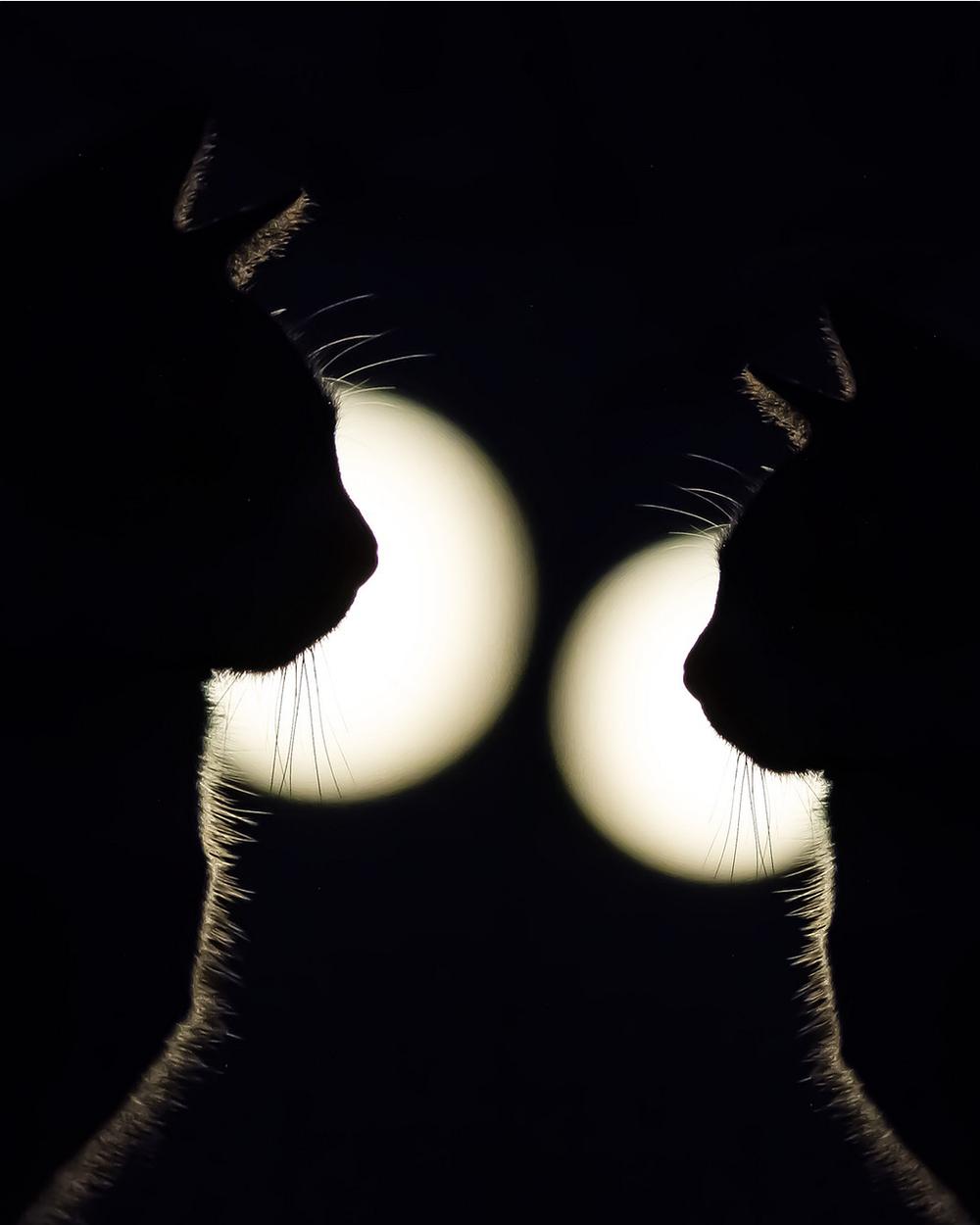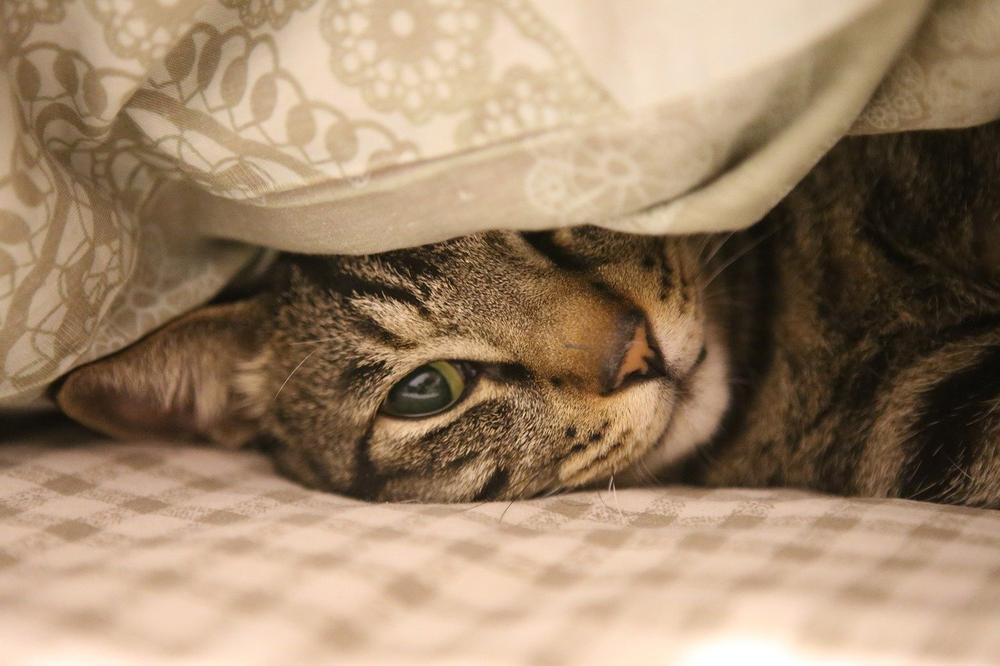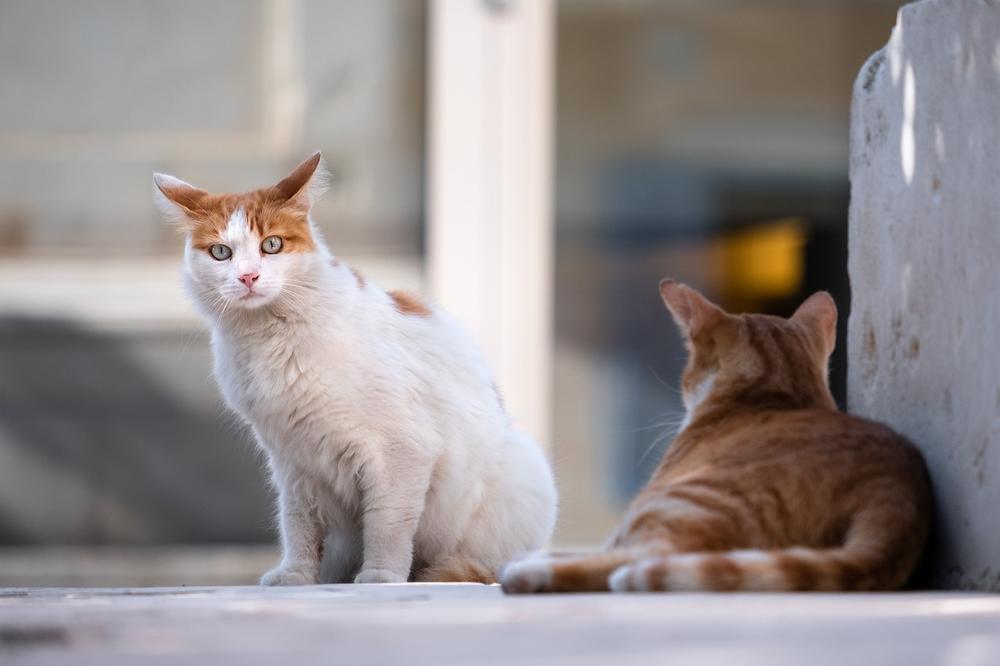Is Lavender Toxic to Cats?

Ever wondered if lavender is toxic to cats?
Worried sick about the safety of your feline friend? 😰
I don't blame you.
Imagining your beloved kitty suffering from the effects of a harmful plant is enough to give anyone sleepless nights.
But fear not, my concerned friends, because today we're diving into the tangled world of lavender and its potential dangers for our purring companions.
So, ready to unveil the truth?
Let's begin.
Are Lavender Plants Toxic to Cats?

To protect your cats from toxic lavender, here are ten things you should know:
- Not all types of lavender are equally dangerous for your feline companions.
- Lavender contains two components, linalool and linalyl acetate, which can be harmful to cats.
- While the lavender plant itself isn't toxic, derivatives like oils, sprays, and diffusers can pose a risk.
- Make sure you keep any lavender products well out of reach of your curious kitties.
- Consider using cat-friendly plants instead of lavender as a safer option.
- Keep in mind that the toxicity levels vary depending on the specific lavender product.
- It's best to prevent your cats from ingesting any form of lavender.
- No one knows for sure the exact amount of lavender that becomes toxic to cats.
- Remember that different cats may have varying degrees of sensitivity to lavender.
- Take all necessary steps to completely block your cats' access to lavender plants and products.
To keep your beloved cats safe from the potential hazards linked to lavender, simply abide by these easy tips. 😺
Signs of Lavender Toxicity in Cats
Here are 10 signs that your cat has been affected by lavender:
- If you hear your cat wheezing or struggling to breathe, their respiratory system might be affected.
- Look out for vomiting or diarrhea as possible indicators of lavender toxicity.
- Keep an eye out for any skin rashes or swelling, as these can be signs of an allergic reaction.
- Notice if your cat becomes less active or lethargic, as this may suggest central nervous system depression.
- If your cat develops jaundice or their liver seems larger, it could be a sign of liver damage caused by lavender.
- Watch for any irritation in their eyes, nose, or throat – lavender toxicity can cause this.
- Hyperactivity or agitation in your cat could be a result of lavender exposure. 😿
- Pay attention to any changes in appetite or decreased food intake in your cat.
- Increased thirst or urination might signal lavender toxicity in your cat.
- Changes in urine output or frequency can also indicate kidney damage in cats exposed to lavender.
If your cat shows any of these signs after being exposed to lavender, take immediate action.
First, move them to an area with clean air and then call a veterinarian right away.
Consuming lavender oils or liquid potpourri can be extremely dangerous for your cat.
To ensure your cat's safety, reach out to an ASPCA poison control center or emergency vet without delay.

Always please keep in mind that even small amounts of lavender can lead to upset stomachs, but larger quantities can cause severe liver damage.
Prioritize your cat's well-being and be attentive when it comes to lavender and essential oil products.
But what should you do if your cat does come into contact with lavender?
I'm glad you asked!
Here's a step-by-step guide on how to handle the situation and ensure your feline friend's safety...
What Do I Do if My Cat Sniffs or Consumes Lavender?
So, what should you do if your cat sniffs or consumes lavender?
Here's what you need to know:
- Remove any traces of lavender from your cat's fur or skin by gently wiping them down with a damp cloth.
- If your cat ingests lavender, it is important to thoroughly bathe them to remove any residue and seek advice from the ASPCA's poison control.
- Be cautious when using liquid potpourris, as they can harm your cat's skin and mouth. It's better to avoid them altogether.
- To prevent ingestion, remove lavender plants from your cat's reach or keep them in an area where your cat cannot access.
- Instead of lavender, offer your cat cat-friendly grass as an alternative. They can chew on it safely.
- Even without symptoms, it is advisable to call a vet if your cat ingests lavender products.
- Cats may accidentally consume lavender by rubbing against plants and grooming themselves, so immediate treatment from an emergency vet or contacting ASPCA Animal Poison Control at (888) 426-4435 is advised.
Taking these steps will ensure your cat's well-being in case of lavender exposure.
And if you're curious about the safety of using lavender oil on cats or if it can be used in a diffuser without harm, I've written a helpful blog post for you.
In my article Is Lavender Oil Safe for Cats, you can find all the answers you need.
I highly recommend checking it out to ease any concerns and ensure the well-being of your feline companion.
How to Treat Lavender Poisoning in Cats
If you think your cat got poisoned by lavender, don't waste time—get them to the vet pronto.
Tell the vet every little detail:
How much lavender it was, and if it was eaten or just sniffed.
Don't try to make your cat puke if you suspect poisoning. Put the lavender or potpourri in a baggie and hand it over to the vet for a closer look.

During the examination, the vet will check your cat's body, do some pee tests, and run blood work to figure out how bad the poisoning is.
Treatment might include IV fluids, meds for the liver, painkillers, antibiotics, and feeding tubes if eating becomes an issue.
Once your fluffy buddy is back on their paws, remove all essential oils and potpourri from your house or keep them far away from curious paws.
By being careful like this, you can prevent any future accidents and ensure your cat stays healthy.
And now, let's delve deeper into the potential risks of lavender for our feline friends.
I want to ensure you have all the information you need to keep your cat safe and healthy...
Can I Diffuse Lavender Around My Cats?
Well, let's cut straight to the chase - lavender can be toxic to cats.
Now, hold your horses.
Let me explain why.
See, lavender plants and products made from lavender pose various risks to cats.
Respiratory irritation, asthma, and aspiration pneumonia are just a few of the potential dangers lurking in the shadows.
Even diluted massage oils can cause a stomachache in your feline friend.
And trust me, nobody wants an upset kitty.
Accidental poisoning is another concern.
Cats can get exposed to lavender through ingestion, inhalation, or even dermal absorption of essential oils.
And here's the kicker:
Undiluted lavender essential oil can be downright lethal for cats.
It can wreak havoc on their liver and leave them with gnarly chemical burns on their precious skin.
Sure, some folks might say it's all cool if you keep your cat a safe distance away from the lavender diffuser.
But let me tell you something, my friend - it still carries a higher risk.
The reality is that airborne particles travel, no matter how far away you think your beloved fluffball is.
So instead of relying on potentially harmful substances like lavender, why not try some catnip?
It's a great alternative that won't put your furry buddy at any risk whatsoever.
Of course, if you really must use lavender products, take precautions like diluting those essential oils.
Preventing ingestion by keeping them out of reach is also wise.
But honestly, the best approach when living with cats is to avoid having lavender around altogether.
Keep your home a lavender-free zone and give your purring companion peace of mind.
You always want what's best for your fur baby, so play it safe and skip the lavender.
Paws off, my friend.
Paws off.
What Essential Oils Are Safe for My Cat?
Certain essential oils, though generally safe for cats, require consultation with your vet before using products that include them due to individual tolerances.
For the safety of your feline friends, be sure to secure lavender oil and skincare items. Be cautious when applying topical products containing lavender essential oils on your pet.

This concern arises from cats lacking liver enzymes needed to process odorous extracts present in essential oils.
While some essential oils are deemed cat-friendly, ingestion must be avoided as feline livers struggle to effectively engage with these elements.
Diligent monitoring for toxicity indications remains crucial when employing essential oils around cats.
Final thoughts
- Lavender, especially in oil form, can be toxic to cats.
- Keep lavender out of a cat's reach and consider cat-friendly plants instead.
- All lavender products have varying degrees of toxicity for cats.
- Cats can experience negative effects from ingestion or exposure to lavender.
- Symptoms of lavender toxicity in cats include gastrointestinal issues and respiratory changes.
- Move the cat to fresh air and contact a veterinarian if respiratory changes occur.
- Ingesting lavender can lead to gastrointestinal upset and severe symptoms.
- Large quantities of lavender can cause liver damage in cats.
- Thoroughly bathe a cat if it comes into contact with or consumes lavender.
- Seek immediate treatment from a veterinarian if lavender is consumed.
- Bring your cat to a veterinarian for examination in case of lavender poisoning.
- Treatment options may include IV fluids and medication to protect the liver.
- Remove all lavender products from the home after the cat has recovered.
- Lavender poses risks to cats such as respiratory irritation and aspiration pneumonia.
- Avoid using undiluted lavender essential oil on or near cats.
And that wraps up today's article.
If you wish to read more of my useful articles, I recommend you check out some of these: Cats and Chamomile, Is Chamomile Essential Oil Safe for Cats, Is Clove Oil Safe for Cats, Can Cats Live in a Garage in the Winter, and Are Begonias Poisonous to Cats
Talk soon,
-Sarah Davis